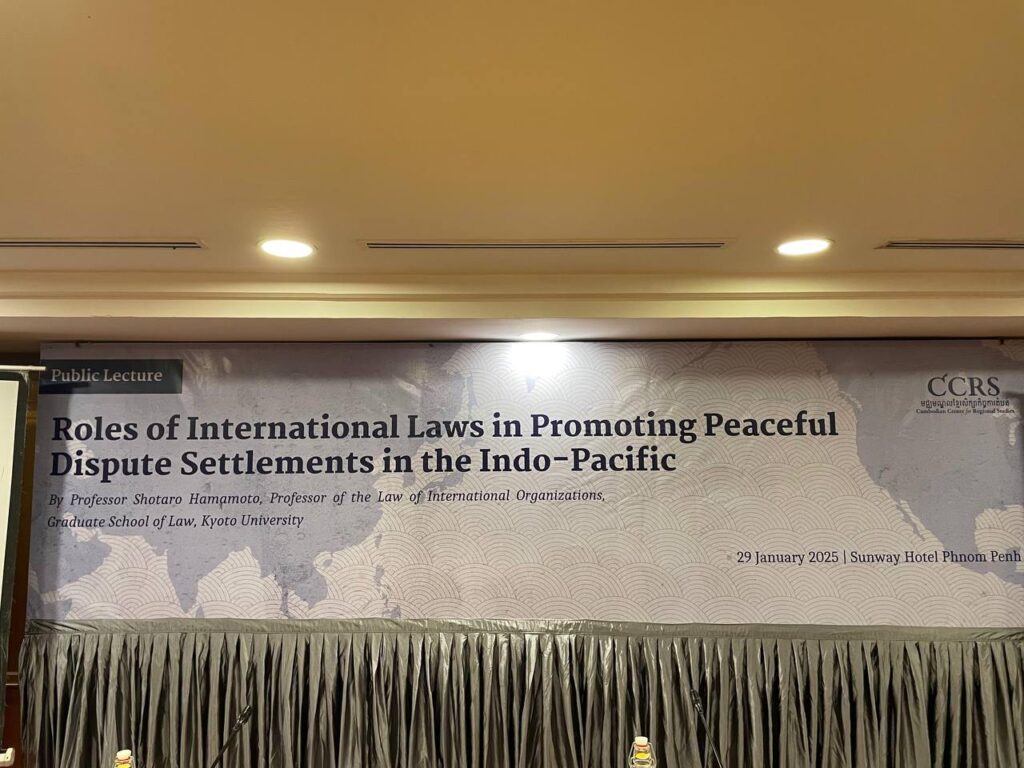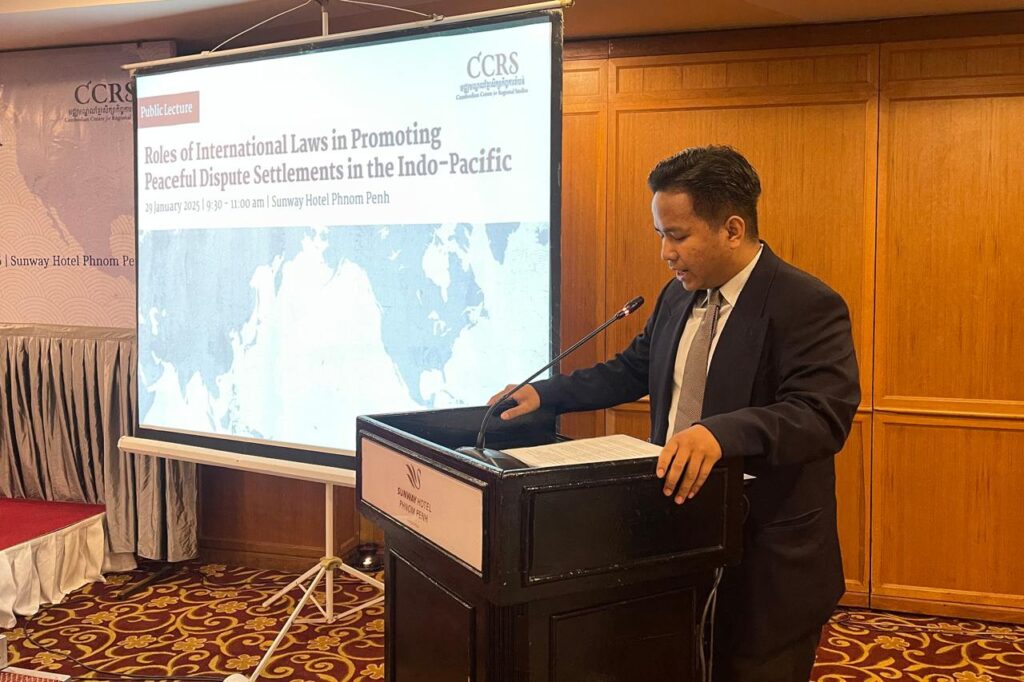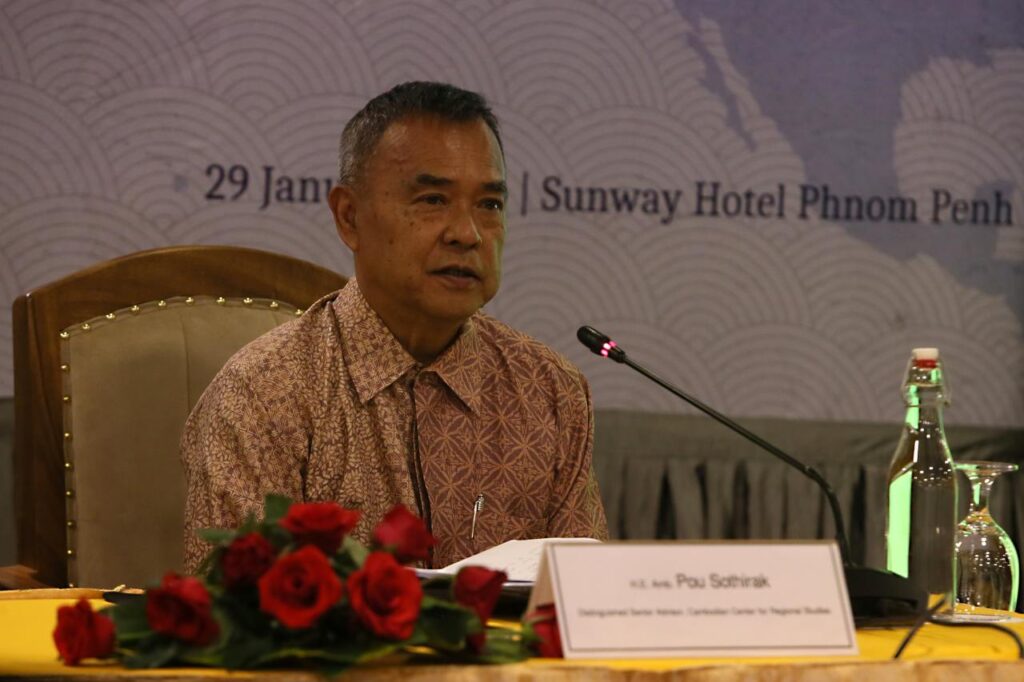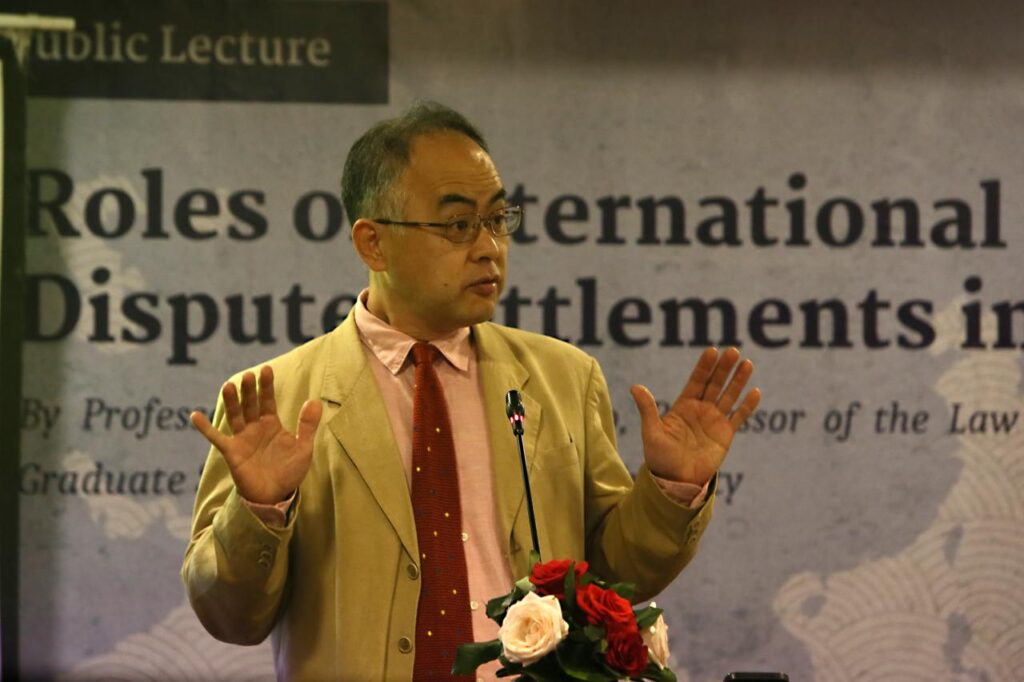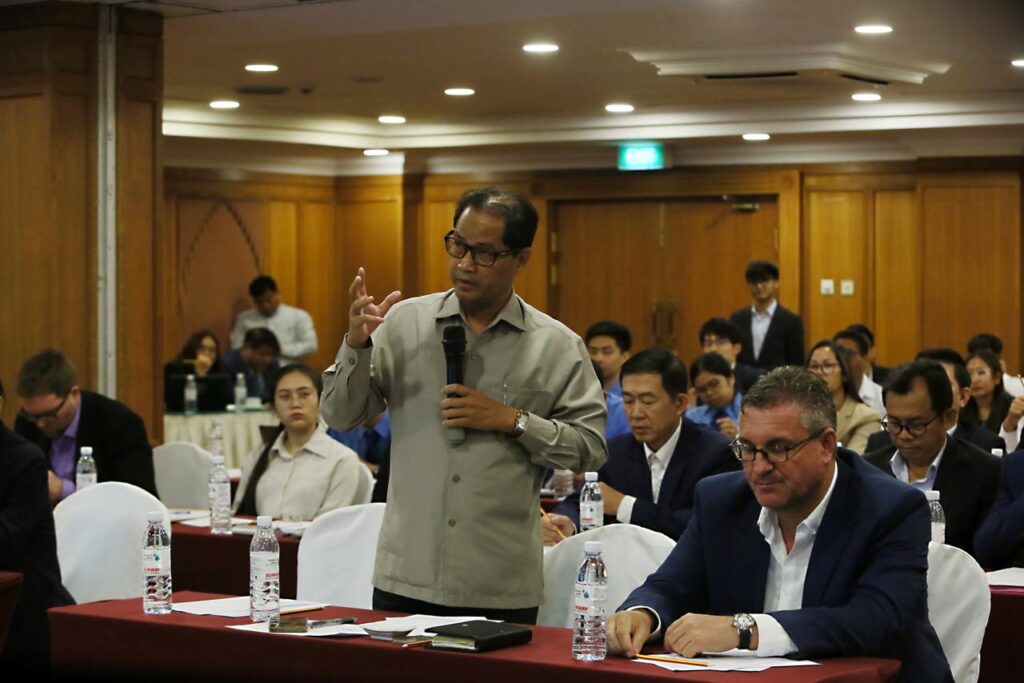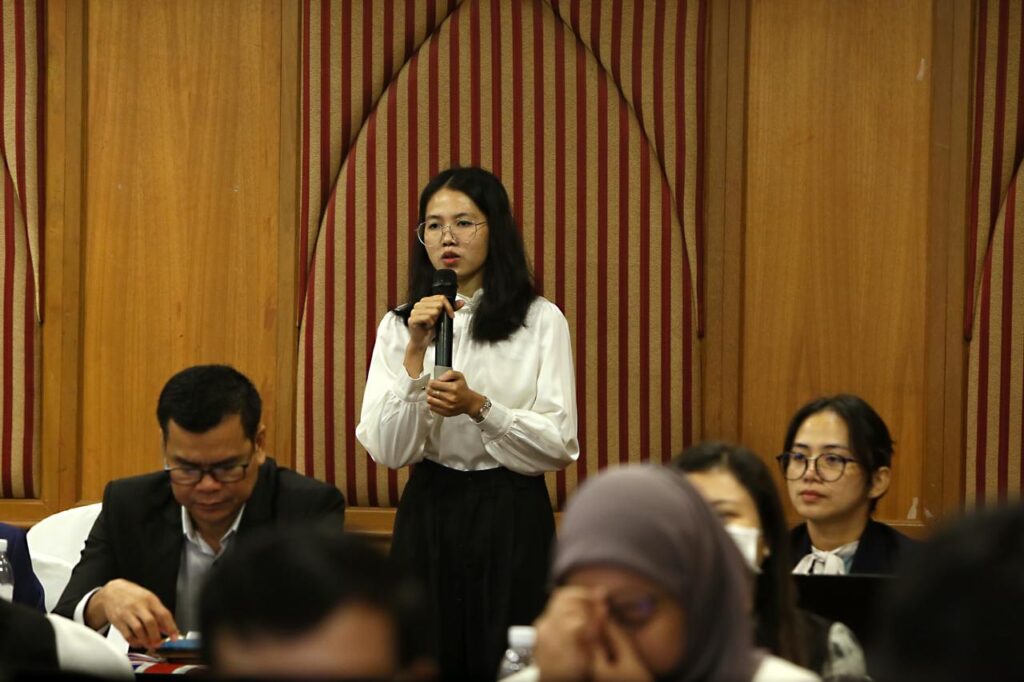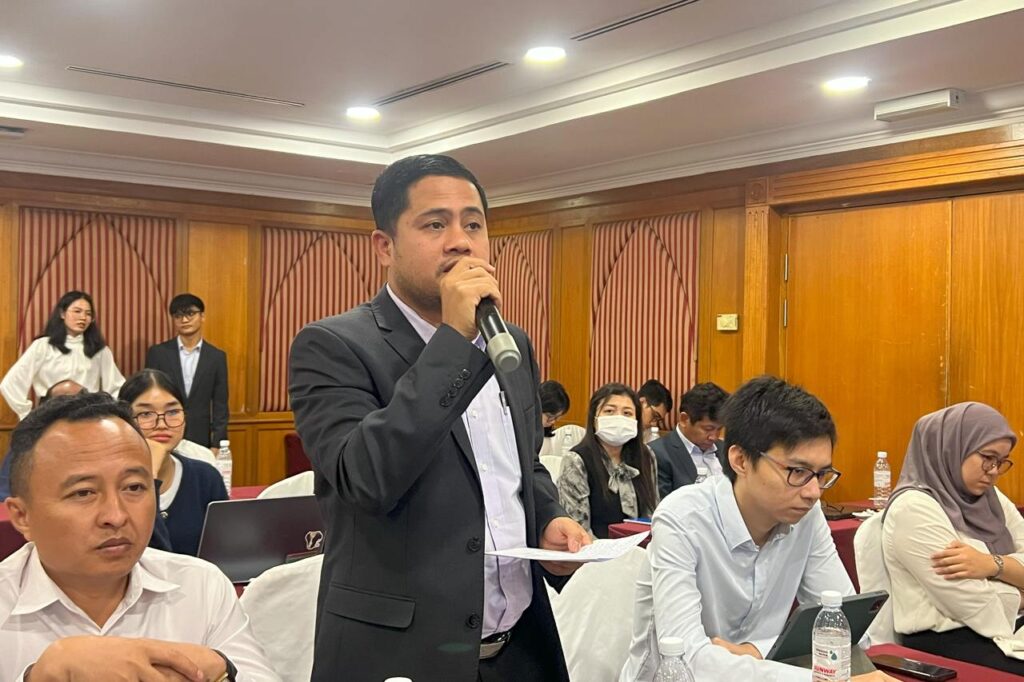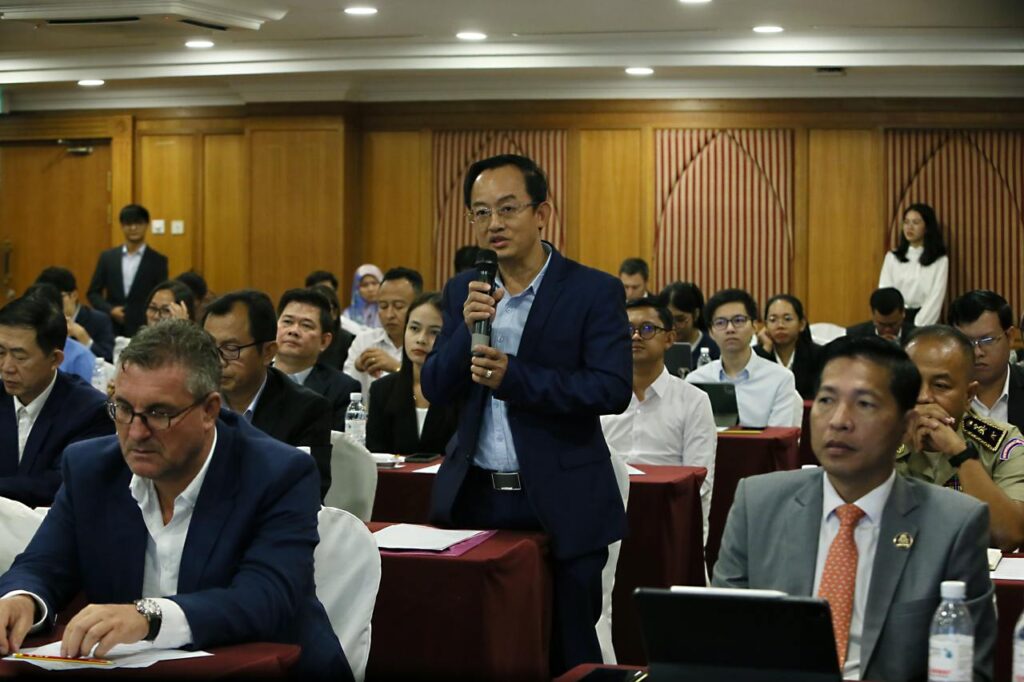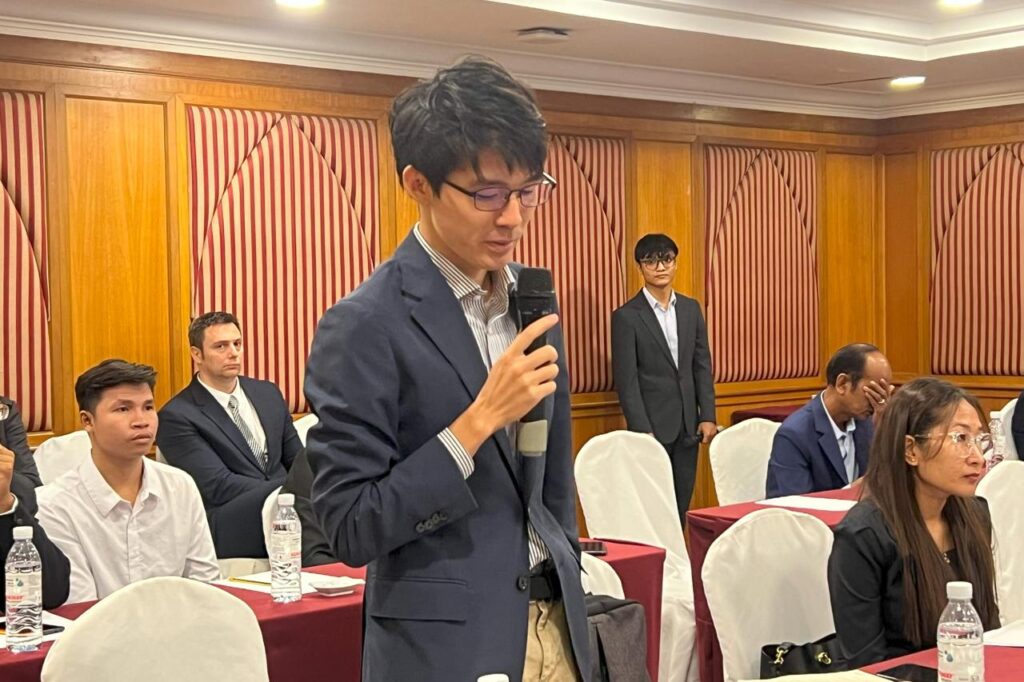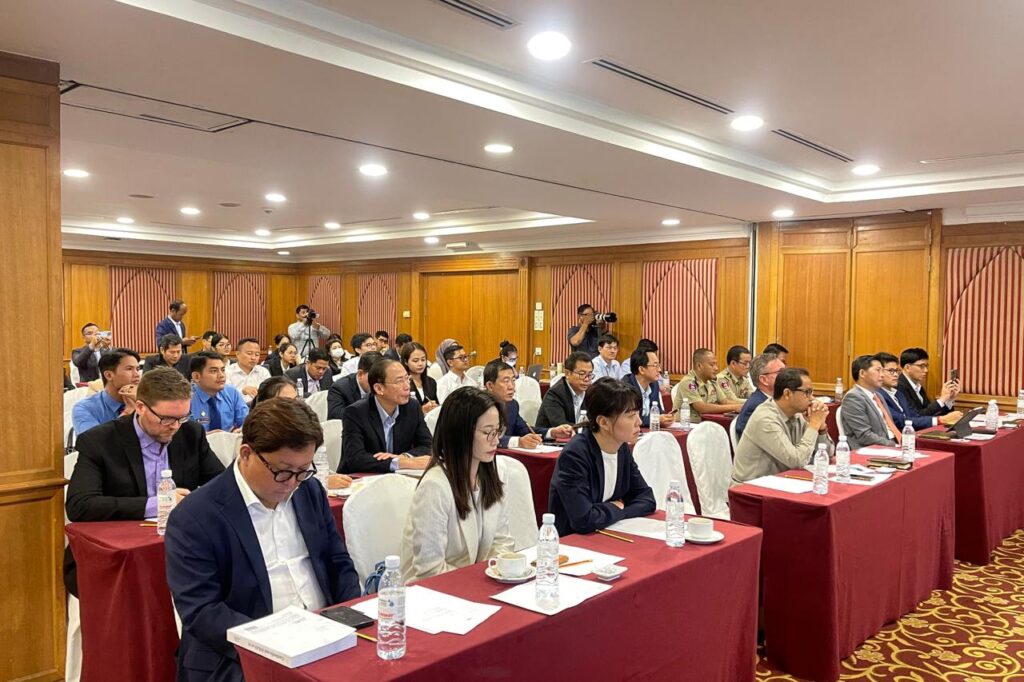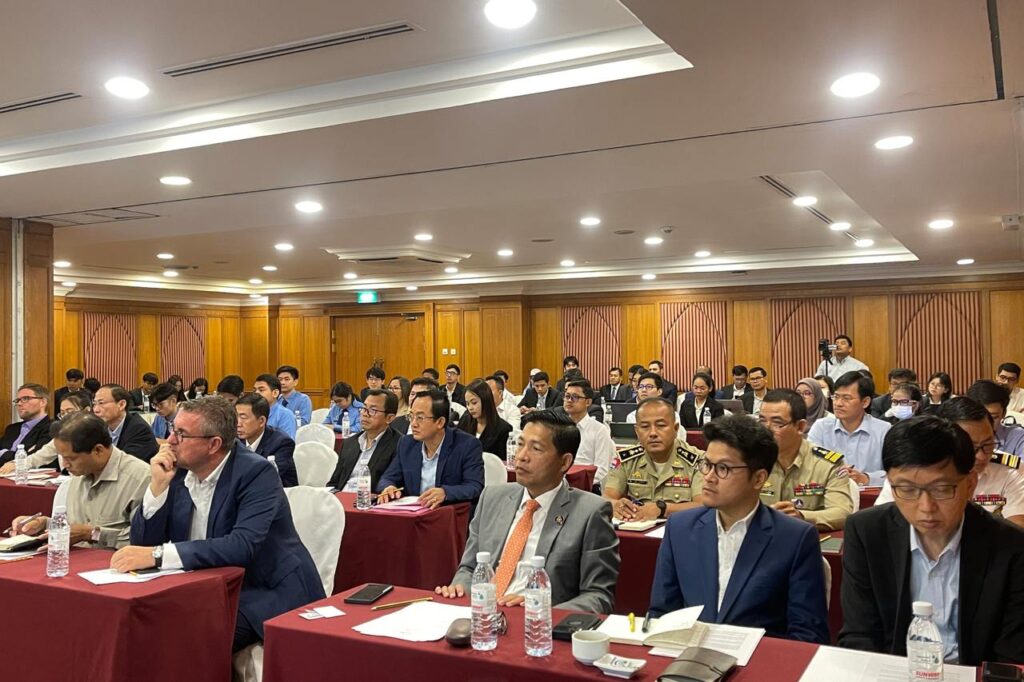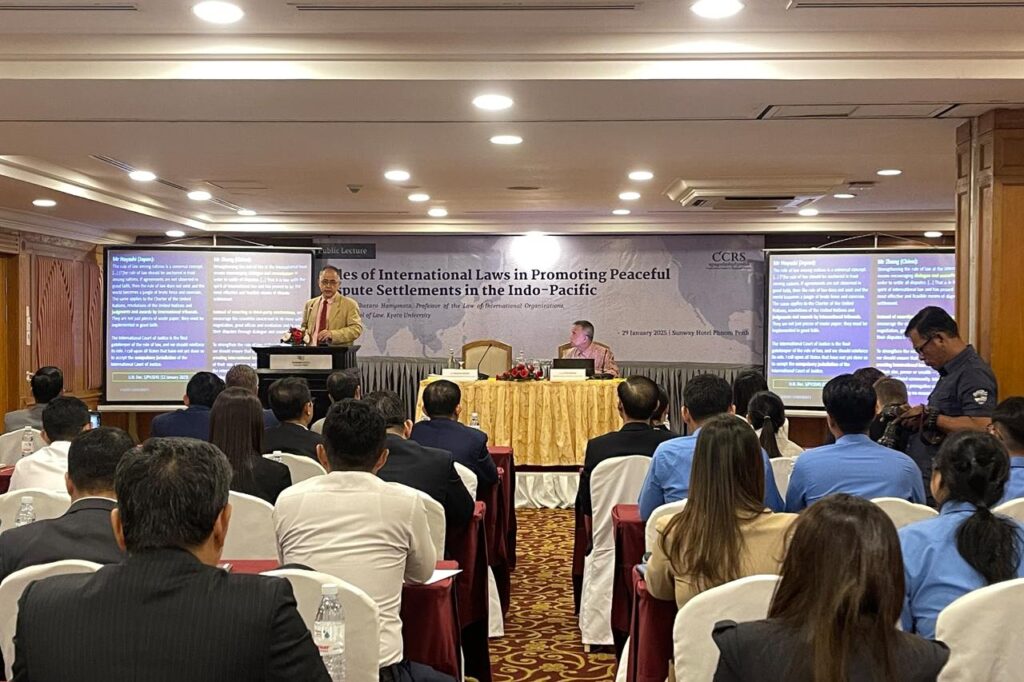On 29 January 2025, from 9:30-11:00am, at Sunway Hotel, the Cambodian Center for Regional Studies (CCRS) organized a public lecture on “Roles of International Law in Promoting Peaceful Dispute Settlement in the Indo-Pacific” by Distinguished Speaker, Prof. Hamamoto Shotaro, Professor, School of Government/Graduate School of Law, Kyoto University. The event was supported by the Embassy of Japan in Cambodia. The lecture was moderated by Amb. Pou Sothirak, Distinguished Senior Advisor to CCRS. About 70 participants included representatives from the Senate and the National Assembly, various government ministries, numerous diplomatic corps, academia, think tank community, civil society, and young university students.
Mr. Him Raksmey, Executive Director of CCRS, warmly welcomed all the distinguished guests and participants to the lecture, and expressed CCRS’ deep appreciation to the Embassy of Japan in Cambodia for the kind support to organize this event. Participants can be expected to learn from Prof. Hamamoto Shotaro the crucial roles of the international law in reinforcing the implementations the principles of peaceful settlement of disputes. Prof. Hamamoto was also expected to discuss the megatrends affecting the rule of law and international law in the Indo-Pacific, and how to foster favorable regional environment conducive in support for an effective rule of law and international law for pacific dispute settlement.
Before giving the floor to the distinguished speaker, Amb. Pou Sothirak, Distinguished Senior Advisor to CCRS informed all participant that there were two other similar events before this one which the Center organized on 19 February 2024 a seminar on “the Law of the Sea: Toward Peaceful Maritime Cooperation in Southeast Asia and on 17 October 2024 another seminar on “Towards Free and Open Indo-Pacific: Prospects and Challenges”. On behalf of CCRS, he expressed deep gratitude to the Japanese Embassy in Cambodia and the Japanese government for the continuous and meaningful supports to promote academic discussions on such important topics most relevant in promoting deep understanding of the rule-based orders founded on the International Laws.
However, the international situation as we know these days show that the rule of law has been eroded as some states continue to defy international law with unaccountability and impunity. The debate about the rule of law today is about how to hold states accountable before the laws that they have put in place in the first place. Civilians continues to suffer the effects of devastating conflicts, loss of human life, illegal development of nuclear weapons and the illegal use of force have been inflicted by states themselves in various parts of the world. Furthermore, flashpoints concerning sovereignty claims are brewing hot with rising tensions between and among the contending states. If the rule of law does not prevail, World War III could be erupted, inflicting grave consequences for all humanity.
Amb. Pou told the audience that Prof. Hamamoto Shotaro’s presentation cover the Roles of International Law in Promoting Peaceful Dispute Settlement in the Indo-Pacific; discuss the role of international law in finding peaceful resolution of territorial disputes between and among states; highlight the essence of the principle of pacific settlement of disputes concerning several concluding disputes in the Indo-Pacific region, and several interstates’ arbitration using the Court of Arbitrations. Prof. Hamamoto will deliberate what constitutes the meaning of the rule of laws and International Court of Justice, and discuss member states’ complaints within the World Trade Organization.
During the lecture, Prof. Hamamoto Shotaro discussed the important role of international laws in finding peaceful resolution of territorial disputes between and among states. According to Article 33 of Chapter VI of the United Nations Charter, peaceful dispute settlements can be in many forms such as negotiation, enquiry, mediation, conciliation, arbitration, judicial settlement, resort to regional agencies or arrangements or other peaceful means. Arbitration and judicial settlement are modes of peaceful dispute settlements that rely on international laws in all disputes including territorial disputes. They provide states, big or small, the legal basis to address disputes in a peaceful and legal manner based on established international laws over sensitive issues including territorial disputes.
Prof. Hamamoto eloquently mentioned that it is difficult to pinpoint the general characteristics of such settlement as each dispute case has different legal ways to settle. He noted that Asian countries within the Indo-Pacific region do not generally favor taking issues to be settled through arbitration and judicial settlement based on international laws due to several key factors including relatively young political history as a sovereign state, geopolitical considerations, and cultural aspects. However, changes took place since 2000. There were several high-profile concluded court cases in Indo-Pacific that states consented to take each other to the International Court of Justice (ICJ) to settle peacefully and legally based on international laws over issues including Cambodia versus Thailand over Judgement Interpretation in the Case concerning the Temple of Preah Vihear, and Malaysia versus Singapore over the case of Sovereignty over Pedra Branca/Pulau Batu Puteh, Middle Rocks and South Ledge. Besides ICJ, Indo-Pacific states also have used Permanent Court of Arbitration to pursue interstate arbitrations such as Pakistan versus India over Indus Water Treaty, Bangladesh versus Myanmar over maritime border delimitation, Japan versus Russia over Tomimaru and Hoshnmaru.
Regarding to what constitutes the meaning of rule of law and how binding of the verdicts of the International Court of Justice, Prof. Hamamoto explained that given the international system is state-centric, states choose to interpret the international laws differently based on their interests. The same issue also happens to the verdicts of ICJ. While ICJ verdicts are legally compulsory that state parties have to comply, there are no means to enforce such verdicts and state parties choose to interpret and implement the verdicts by themselves. He compared the interpretation of Japan and China over the principle of the international rule of law which is starkly different. For Japan, the rule of law should be anchored in trust among nations. Therefore, the UN Charter, UN resolutions and judgements and awards by international tribunals must be implemented in good faith. Japan views ICJ is the final gatekeeper of the rule of law, and urges all states to accept compulsory jurisdiction of ICJ. On the other hand, for China, the strengthening the rule of law means encouraging dialogue and consultation instead of resorting to third-party mechanisms. China also calls for all countries are engaged in creating international laws.
To enhance more effective implementations and enforcements of international laws, Prof. Hamamoto mentioned that states should actively participate in relevant meetings to debate and discuss changes and creations of international laws. To do so requires states to engage in capacity-building efforts to garner sufficient knowledge and experiences in the field of international laws to reap their full benefits. Due to resource constraints, states do not have to take part in all meetings in creating all international laws but they should make efforts to join meetings on crafting international laws that have aspects relevant to their national interests. In the World Trade Organization (WTO), Indo-Pacific states such as China, Indonesia, Japan, South Korea, Malaysia, Philippines, Singapore, Thailand and Vietnam have been actively engaged in voicing their views through complaints and arbitrations. These states consider trade as vital and relevant to seek international laws to safeguard their individual interests.
Following Prof. Hamamoto’s presentation, there was an interactive Q&A discussion between the distinguished speaker, esteemed moderator and participants.
Key questions touched upon how to enhance Cambodia’s capacity in international laws; how to promote more buy-in from states to accept jurisdictions of international laws for peaceful dispute settlement, the importance of applying the United Nations Convention on the Law of the Sea (UNCLOS) in regional issues; main challenges to application of international laws to achieve peaceful dispute settlements in sovereignty claims such as the South China Sea, and how effective are the ASEAN peaceful dispute settlements.
The distinguished speakers responded to these key questions satisfactorily for the benefits of those who asked him these questions in particular and for greater clarity on international laws for the general audiences who attended the lecture.
Amb. Pou asserted that indeed the audiences have learned the importance of international laws in settling disputes peacefully from our distinguished speaker, Prof. Hamamoto Shotaro. Accordingly, he summarized three key takeaways below:
+ Small states need to develop capacity in international laws among officials, particularly at the Foreign Ministry and National Border Committee and among university students who study International Relations as international laws help small states in building solid legal legitimacy to protect themselves especially on key aspects of their national sovereignty and their natural resources.
+ Small states must make greater effort to participate in the discussions and debates on issues related to International Laws that are relevant to their individual national interest.
+ International Laws protect the interest of small states if those state sign up to such international conventions or treaties. For example, if Cambodia ratifies UNCLOS, the country can reap full benefits the country’s maritime domains with legal protection from this important law of the sea.
In closing and on behalf of CCRS, Amb. Pou expressed his appreciation to the distinguished speaker, Prof. Hamamoto Shotaro for delivering such a resounding public lecture. He extended deep thankfulness to the Embassy of Japan in Cambodia for the kind support in making this event possible. Amb. Pou also expressed appreciation to all the distinguished participants for taking their valuable time, amidst Lunar New Year, to actively engage in this public lecture.
The lecture was concluded in a cordial atmosphere.
